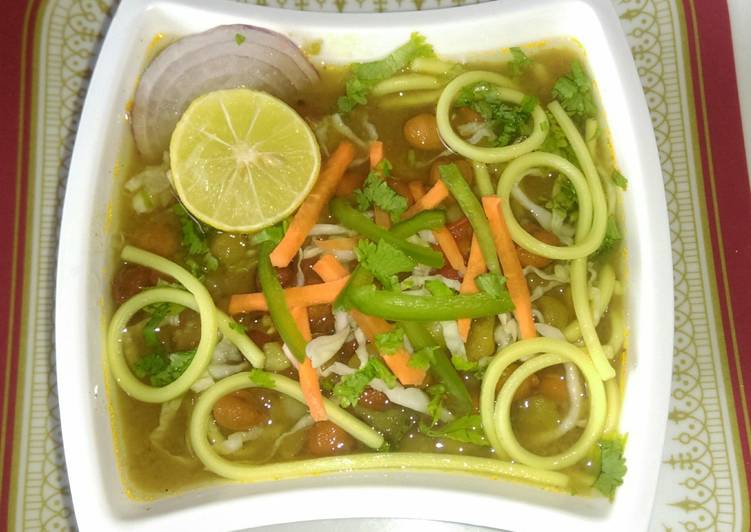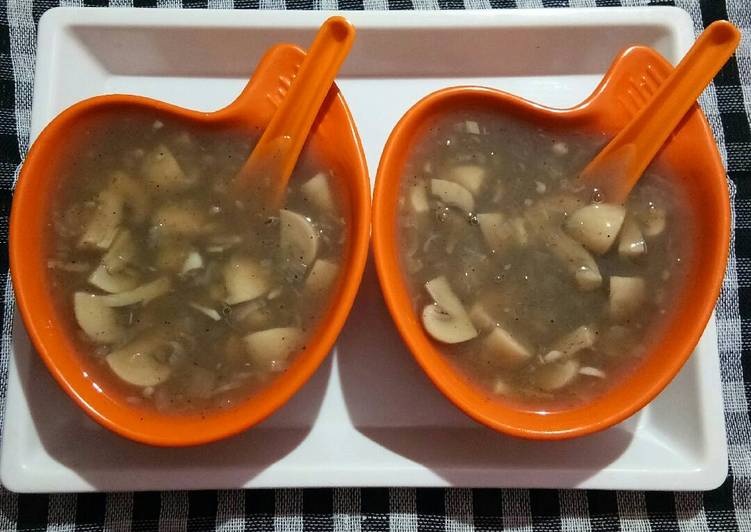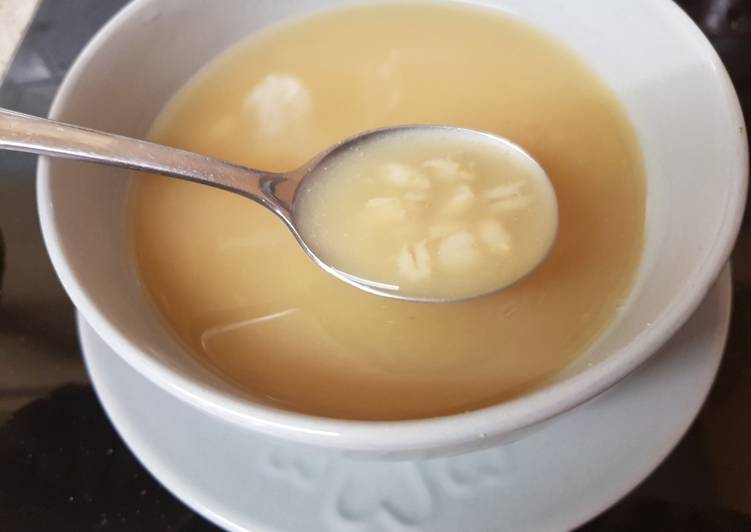
Hey everyone, hope you are having an amazing day today. Today, we’re going to prepare a distinctive dish, noodles thukpa (soup). One of my favorites food recipes. This time, I will make it a little bit tasty. This will be really delicious.
Thukpa is actually a Tibetan Noodle Soup and according to Wiki, "It originated in the eastern part of Tibet. The dish became popular in Nepal, Bhutan, and the states of Sikkim, Assam, and Arunachal Pradesh in Northeast India. It is also popular in the Ladakh region and the state of Himachal Pradesh." Thukpa is a popular soup in the northern Himalayan region of Nepal. Fragrant, hearty and simple to prepare, this satisfying soup recipe is an easy midweek winter warmer.
Noodles Thukpa (soup) is one of the most well liked of recent trending meals in the world. It is appreciated by millions daily. It’s simple, it’s fast, it tastes delicious. Noodles Thukpa (soup) is something which I’ve loved my whole life. They’re fine and they look fantastic.
To get started with this recipe, we have to prepare a few ingredients. You can cook noodles thukpa (soup) using 16 ingredients and 9 steps. Here is how you can achieve it.
The ingredients needed to make Noodles Thukpa (soup):
- Get 200 gm pkt thukpa noodles
- Get 1 bowl chana (soaked in water)
- Get 1 bowl hari matar (soaked in water)
- Make ready 2 potatoes
- Make ready 1 onion chopped
- Prepare 1 tomato chopped
- Make ready 1 teaspoon Garlic ginger paste
- Take 1 teaspoon chana masala powder
- Take 2 tej patta
- Make ready 1 carrot grated
- Get 1/2 cup cabbage chopped
- Prepare 2 tbsp coriander leaves chopped
- Make ready 1 spoon lemon juice
- Get 2 green chilli chopped
- Take to taste Salt
- Take 2 tbsp oil
In Bhutan it would usually be made with buckwheat noodles Thukpa is a traditional Tibetan staple food suitable for the highland climate to keep the nomads warm during the long Tibetan winters enjoying a very nutritious meal. Generally speaking, noodle soups of all kinds are known as "thukpa." Thukpa is a generic Tibetan word for any soup or stew combined with noodles. ! Thukpa is a Tibetan word used for any variety of soup cooked with noodles. It is originally a Tibetan dish which is flavourful and wholesome, but mild in taste.
Instructions to make Noodles Thukpa (soup):
- Potato ko peel off karke pieces cut ker lo and chane aur matar ke sath ek cooker me haldi aur salt dalker 3 whistle tak pakne dena h.
- Ek kardahi me oil garam kijiye aur onion fry kerle, fir garlic ginger paste bhi dalker fry ker le.
- Fir tejpatta, tomatoes, salt dalker achhi tarah fry kerna h. Fir isko paki hui chane matar ke cooker me dalde.
- Ab 2-4 bar achhi trh se stirrer mixKar do and chane masala powder, coriander leaves dalke dhakan lagake 5 minutes rakh dena h.
- Fir ek bartan me pani boil karein aur thorda salt & oil dalke noodles dalde.
- Fir chlate huye 75% pkaye, fir gas offKar do.
- Ab ek channi / strainer me noodles ko chaan le saara garam pani nikal jaye ga, uper se thanda pani dalte huye achhi tarah se dhona hai.
- Ab ek bowl me thorda sa noodles thukpa daliye aur uper se garma garam chane matar wali gravy soup daliye.
- Ab top me cabbage, carrot, hari mirch, onion, lemon juice, coriander leaves se garnish kerke serve kijiye.
Thukpa is a Tibetan word used for any variety of soup cooked with noodles. It is originally a Tibetan dish which is flavourful and wholesome, but mild in taste. Though it's mainly a Tibetan traditional dish, but it's very famous among and widely consumed by people of Bhutan, Nepal and many parts of India - Assam, Meghalaya, Nagaland. The chicken thukpa (noodle soup), is not only delicious, but a complete meal in itself too. It is loaded with vegetables, chicken and noodles, all dunked in a yummy broth.
So that’s going to wrap it up with this special food noodles thukpa (soup) recipe. Thanks so much for your time. I am confident that you will make this at home. There is gonna be interesting food at home recipes coming up. Remember to save this page on your browser, and share it to your loved ones, colleague and friends. Thanks again for reading. Go on get cooking!

